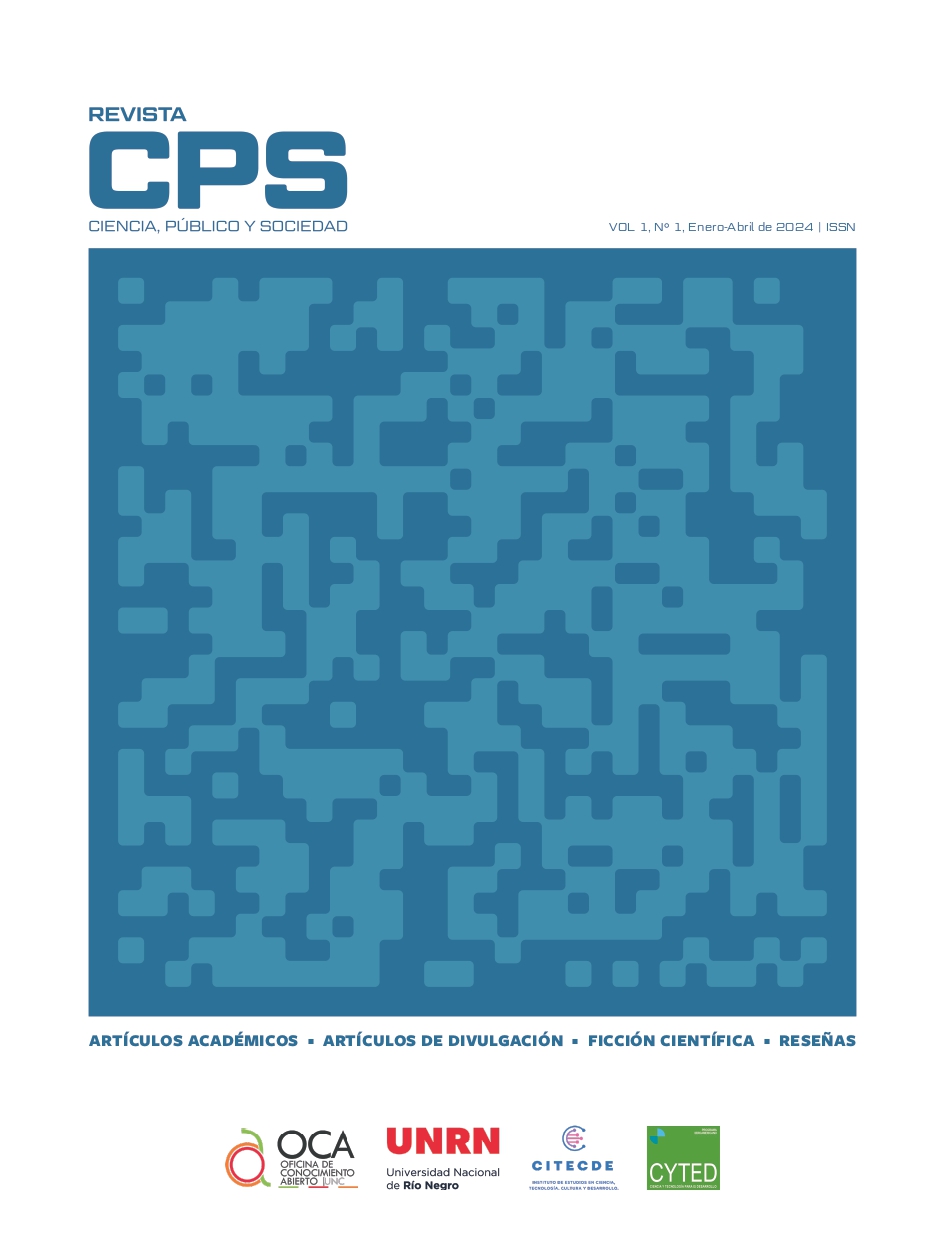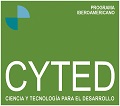La movilización de expertos y experticias en materia ambiental
Palabras clave:
experticia, expertos activistas, conflictos ambientales, agrotóxicosResumen
Las políticas medioambientales son, en el fondo, políticas epistémicas: disputas sobre lo que se sabe o se desconoce de la naturaleza y sobre quién puede hablar en su nombre. Este artículo se centra en la política de la experticia que inevitablemente se deriva de estas batallas. La revisión de los trabajos existentes pone de relieve cómo se organizan los expertos activistas y qué efectos tiene la movilización de los/las expertos/as en la ciencia, los conflictos ambientales y el cambio socio-ecológico en general. Comenzamos describiendo algunos de los retos conceptuales y metodológicos que plantea el estudio de los/las expertos/as en los movimientos ambientalistas. A continuación, presentamos un estudio de caso sobre expertos y experticia en el conflicto por el uso masivo de agrotóxicos en Argentina, que lleva ya dos décadas, para poner de relieve las lagunas en los conocimientos actuales. En una tercera sección se extraen varias lecciones del estudio de caso y en la sección final se proponen líneas de investigación futuras.
Referencias
Allen, B. (2003). Uneasy Alchemy: Citizens and Experts in Louisiana’s Chemical Corridor Disputes. Cambridge, MA: MIT Press.
Arancibia, F. (2013). Challenging the bioeconomy: The dynamics of collective action in Argentina. Technology in Society, 35(2), 72–92.
Arancibia, F. (2015). The struggle to restrict pesticide use: The confluence of social movements and a network of expertise. PhD dissertation, Department of Sociology, State University of New York at Stony Brook.
Arancibia, F. (2016). Rethinking activism and expertise within environmental health conflicts. Sociology Compass, 10(6), 477–490.
Arancibia, F., & Motta, R. (2019). Undone science and counter-expertise: Fighting for justice in an Argentine community contaminated by pesticides. Science as Culture, 28(3), 1–26.
Arancibia, F., & Albea, J. (2021). Los Congresos de Salud Socio Ambiental: construcción de redes y movilización de saberes, unpublished manuscript.
Aranda, D. (2009). El tóxico de los campos. Pagina 12, April 13.
Aranda, D. (2015). Tierra Arrasada. Buenos Aires: Sudamericana.
Bandarage, A. (2013). Political economy of epidemic kidney disease in Sri Lanka. SAGE Open, 3(4), 1-13.
Bliss, C. (2012). Race Decoded: The Genomic Fight for Social Justice. Palo Alto, CA: Stanford University Press.
Breyman, S., Campbell, N., Eubanks, V., & Kinchy, A. (2017). STS and social movements: Pasts and futures. In U. Felt, R. Fouché, C. A. Miller, & L. Smith-Doerr (Eds.), Handbook of Science and Technology Studies. Cambridge, MA: MIT Press, 289-318.
Brown, P. (1992). Toxic waste contamination and popular epidemiology: Lay and professional ways of knowing. Journal of Health and Social Behavior, 33, 267-81.
Brown, P. (2007). Toxic Exposures: Contested Illnesses and the Environmental Health Movement. New York: Columbia University Press.
Cabaleiro, F. (2020). Praxis Jurídica Sobre Los Agrotóxicos En La Argentina. Tercera Ed. Ciudad Autónoma de Buenos Aires: Naturaleza de Derechos.
Carrizo, C., & Berger, M. (2009). Estado Incivil y Ciudadanos Sin Estado: Paradojas Del Ejercicio de Derechos En Cuestiones Ambientales. Cordoba: Narvaja Editor.
Choudry, A., & Kapoor, D. (2010). Learning from the Ground Up. New York: Palgrave Macmillan.
Clarke, A. E. (1998). Disciplining Reproduction: Modernity, American Life Sciences, and “the Problems of Sex.” Berkeley and Los Angeles: University of California Press.
Collins, H., & Evans, R. (2007). Rethinking Expertise. Chicago: University of Chicago Press.
Cox, L. (2014). Movements making knowledge: A new wave of inspiration for sociology? Sociology, 48(5), 954–71.
Delborne, J. (2008). Transgenes and transgressions: Scientific dissent as heterogeneous practice. Social Studies of Science, 38(4), 509–41.
Delborne, J. (2016). Suppression and dissent in science. In T. Bretag (Ed.), Handbook of Academic Integrity. Singapore: Springer, 943-956.
Dillon, L., Dawn, W., Shapiro, N., Underhill, V., Martenyi, M., Wylie, S., Lave, R., Murphy, M., Brown, P., & Environmental Data and Governance Initiative. (2017). Environmental data justice and the Trump Administration: Reflections from the environmental data and governance initiative. Environmental Justice, 10(6), 186-192.
Epstein, S. (1996). Impure Science: AIDS, Activism, and the Politics of Knowledge. Berkley and Los Angeles: University of California Press.
Escobar, A. (2008). Territories of Difference: Place, Movements, Life, Redes. Durham, NC: Duke University Press.
Eyal, G. (2013). For a sociology of expertise: The social origins of the autism epidemic. American Journal of Sociology, 118(4), 863-907.
Eyal, G., Hart, B., Onculer, E., Oren, N., & Rossi, N. (2010). The Autism Matrix. London: Polity Press.
Eyerman, R., & Jamison, A. (1991). Social Movements: A Cognitive Approach. University Part, PA: Pennsylvania State University Press.
Feeney, I. E. (2019). Ciencia digna: The Latin American movement for a ‘pueblo-centric’ science. Science for the People, 22(1), n.p.
Fisher, D. R. (2018). Scientists in the resistance. Sociological Forum, 33(1), 247-250.
Frickel, S. (2004). Chemical Consequences: Environmental Mutagens, Scientist Activism, and the Rise of Genetic Toxicology. New Brunswick: Rutgers University Press.
Frickel, S. (2018). Political scientists. Sociological Forum, 33(1), 234-238.
Frickel, S., & Arancibia, F. (2021). Environmental Science and Technology Studies. In B. Caniglia, A. Jorgenson, S. Malin, L. Peek, D. Pellow (Eds.), International Handbook of Environmental Sociology. London: Routledge, in press.
Frickel, S., Torcasso, R., & Anderson, A. (2015). The organization of expert activism: Shadow mobilization in two social movements. Mobilization, 21(3), 305-323.
Frickel, S., & Rea, C. (2020). Drought, hurricane, or wildfire? Assessing the Trump Administration’s anti-science disaster. Engaging Science, Technology and Society, 6, 66-75; DOI:10.17351/ests2020.297.
Giugni, M., & Grasso, M. T. (2015). Environmental movements in advanced industrial democracies: Heterogeneity, transformation, and institutionalization. Annual Review of Environmental Resources, 40, 337–61.
Gramsci, A. (1971). Selections from the Prison Notebooks of Antonio Gramsci, edited by Q. Hoare and G. Nowell-Smith. New York: International Publishers.
Grasso, M. T., & Giugni, M. (2021). Environmental movements worldwide. In The Routledge Handbook of Environmental Movements.
Harding, S. (1995). ‘Strong objectivity’: A response to the new objectivity question. Synthese, 104(3), 331–49.
Harrison, J. L. (2011). Pesticide Drift and the Pursuit of Environmental Justice. Cambridge, MA: MIT Press.
Hayes, S. P. (1987). Beauty, Health and Permanence: Environmental Politics in the United States, 1955-1985. Cambridge: Cambridge University Press.
Hess, J. (2016). Undone Science: Social Movements, Mobilized Publics, and Industrial Transitions. Cambridge, MA: MIT Press.
Hess, J., & Frickel, S. (2014). Introduction: Fields of knowledge and theory traditions in the sociology of science. Political Power and Social Theory, 27, 1-30.
Hoffman, L. M. (1989). The Politics of Knowledge: Activist Movements in Medicine and Planning. Albany, NY: SUNY Press.
Jamison, A. (2001). The Making of Green Knowledge: Environmental Politics and Cultural Transformation. London: Cambridge University Press.
Jamison, A., Eyerman, R., Cramer, J. (with J. Laessoe). (1990). The Making of the New Environmental Consciousness: A Comparative Study of the Environmental Movements in Sweden, Denmark, and The Netherlands. Edinburgh: University of Edinburgh Press.
Jouzel, J. N., & Prete, G. (2014). “Devenir victime des pesticides. Le recours au droit et ses effets sur la mobilisation des agriculteurs phyto-victimes.” Sociologie Du Travail, 56(4), 435–53.
Kinchy, A. J. (2006). On the borders of post-war ecology: Struggles over the Ecological Society of America’s Preservation Committee, 1917-1946. Science as Culture, 15 (1), 23-44.
Kroll-Smith, S., Brown, P., & Gunther, V. (2000). Knowledge, citizens and organizations: An overview of environments, diseases, and social conflict. In S. Kroll-Smith, P. Brown, & V. J. Gunther (Eds.), Health and Illness: A Reader in Contested Medicine. New York: NYU Press, 9-28.
Leff, E. (1995). Green Production. Towards an Environmental Rationality. New York: Guilford Publications.
Leguizamón, A. (2014). Modifying Argentina: GM soy and socio-environmental change. Geoforum, 53, 149–60.
Lozano, Arribas A. (2018). Knowledge co-production with social movement networks. Redefining grassroots politics, rethinking research. Social Movement Studies, 17(4), 451–63.
Lucena, H. M. de A., Pereira Caramelo, J., & Bezerra da Silva, S. (2019). Popular education and youth: The social movement as an educational space. Cadernos de Pesquisa, 49(174), 290–315.
MacKendrick, N. (2017). Out of the Labs and into the Streets: Scientists get political. Sociological Forum, 32(4), 896-902.
Martínez Alier, J. (2002). The Environmentalism of the Poor: A Study of Ecological Conflicts and Valuation. Cheltenham, UK: Edward Elgar.
McCormick, S. (2009). Mobilizing Science: Movements, Participation and the Remaking of Knowledge. Philadelphia, PA: Temple University Press.
Mejias Sandia, C., & Suarez, P. (2017). Configurando nuevos movimientos sociales Latinoamericanos en el esapcio de requesbrajamiento epistemico-colonial. Reflexiones, 96(1), 97–108.
Moore, K. (2008). Disrupting Science: Social Movements, American Scientists, and the Politics of the Military, 1945-1975. Princeton, NJ: Princeton University Press.
Montenegro, R. (2002). Ituzaingo, Plaguicidas En Suelo. Informe de Prensa. Córdoba. Córdoba, Argentina.
Montenegro, R. (2003). Informe Sobre Los Posibles Contaminantes Que Habrían Provocado La Alta Morbi-Mortalidad Registrada En Barrio Ituzaingo Anexo. Establecimiento de Los Contaminantes Principales y de Sus Rutas. Córdoba.
Motta, R., & Arancibia, F. (2016). Health experts challenge the safety of pesticides in Argentina and Brazil. In J. M. Chamberlain (Ed.), Medicine, Risk, Discourse and Power, vol. 1. New York, NY: Routledge, 179–206.
Motta, R., & Alasino, N. (2013). Medios y política en la Argentina: las disputas interpretativas sobre la soja transgénica y el glifosato. Question, 1(38), 323–35.
Nikol, L. J., & Jansen, K. (2020). The politics of counter-expertise on aerial spraying: Social movements denouncing pesticide risk governance in the Philippines. Journal of Contemporary Asia, 50(1), 99-124.
Ottinger, G., & Cohen, B. R. (Eds.). (2011). Technoscience and Environmental Justice: Expert Cultures in a Grassroots Movement. Cambridge, MA: MIT Press.
Ottinger, G., Barandiaran, J., & Kimura, A. (2017). Environmental justice: Knowledge, technology and expertise. In U. Felt, R. Fouche, C. Miller, & S.-D. Laurel (Eds.), Handbook of Science and Technology Studies, 4th ed. Cambridge MA: MIT Press, 1029–1057.
Paganelli, A., Gnazzo, V., Acosta, H., López, S. L., & Carrasco, A. (2010). Glyphosate-based herbicides produce teratogenic effects on vertebrates by impairing retinoic acid signalling. Chemical Research in Toxicology, 23(10), 1586–95.
Paz Belada, A. (2017). Regulación de Los Agroquímicos En La Argentina: Hacia Una Ley General de Presupuestos Mínimos Regulatorios. Licenciatura thesis, Universidad de San Andrés. Victoria, Buenos Aires, Argentina.
Rulli, J. (2009). Pueblos Fumigados: Los Efectos de Los Plaguicidas En Las Regiones Sojeras. Buenos Aires, Argentina: Del nuevo extremo.
Sannazzaro, J. (2014). Citizen cartography, strategies of resistance to established knowledge and collective forms of knowledge building. Public Understanding of Science, 25(3), 346–60.
Sarandon, S., & Marasas, M. E. (2017). Brief history of agroecology in Argentina: origins, evolution, and future prospects. Agroecology and Sustainable Food Systems, 41(3-4), 238-255.
Schroering, C. (2019). Producción de resistencia y conocimiento: Movimientos sociales como productores de teoría y praxis. Revista CS, 29, 73-102.
Shepard, P. M., Northridge, M. E., Prakash, S., & Stover, G. (2002). Preface: Advancing environmental justice through community-based participatory research. Environmental Health Perspectives, 110(Supplement 2, April), 139-140.
Shostak, S. (2013). Exposed Science: Genes, the Environment, and the Politics of Population Health. Berkeley and Los Angeles: University of California Press.
Smith, A. K. (1965). A Peril and a Hope: The Scientist’s Movement in America, 1945-47. Cambridge, MA: MIT Press.
Sosa, B., Fontans-Álvarez, E., Romero, D., Fonseca, A., & Achkar, M. (2019). Analysis of scientific production on glyphosate: An example of politicization of science. Science of the Total Environment, 681, 541–50.
Svampa, M. (2009). Protesta, movimientos sociales y dimensiones de la acción colectiva en América Latina. Nomadas, 20, 112–26.
Svampa, M. (2015). Commodities consensus: Neoextractivism and enclosure of the commons in Latin America. South Atlantic Quarterly, 114(1), 65–82.
Teubal, M. (2006). “Expansión del modelo sojero en la Argentina: De la producción de alimentos a los commodities. Realidad Económica, 220, 71–96.
Teubal, M. (2008). Soja y agronegocios en la Argentina: La crisis del modelo. Laboratorio/n Line, 22, 5–7.
Verzeñassi, D., & Vallini, A. (2019). Transformaciones En Los Modos de Enfermar y Morir En La Región Agroindustrial. Rosario.
Vessuri, H. (2004). La hibridización del conocimiento. La tecnociencia y los conocimientos locales a la búsqueda del desarrollo sustentable. Convergencia, 11(35), 171–91.
Wisnioski, M. (2012). Engineers for Change: Competing Visions of Technology in 1960s America. Cambridge, MA: MIT Press.
Yearley, S. (1991). The Green Case: A Sociology of Environmental Arguments, Issues and Politics. New York: Harper Collins.
Yoon, H., & Saurí, D. (2019). ‘No more thirst, cold, or darkness!’ – Social movements, households, and the coproduction of knowledge on water and energy vulnerability in Barcelona, Spain. Energy Research and Social Science, 58, 101276.
Descargas
Publicado
Número
Sección
Licencia
Derechos de autor 2024 Scott Frickel, Florencia Arancibia

Esta obra está bajo una licencia internacional Creative Commons Atribución-NoComercial-CompartirIgual 4.0.
No se permite un uso comercial de la obra original ni de las posibles obras derivadas, la distribución de las cuales se debe hacer con una licencia igual a la que regula la obra original.






